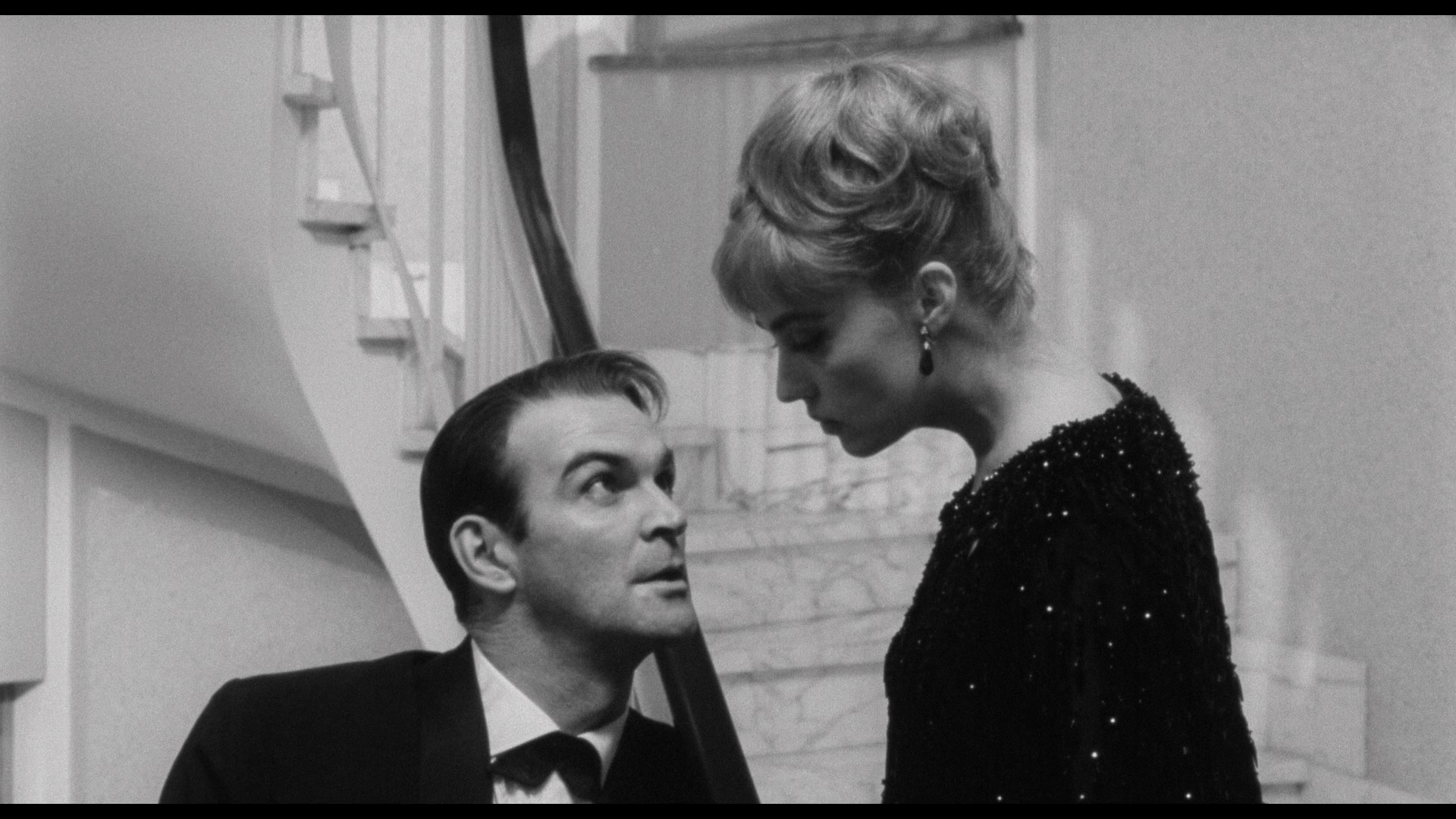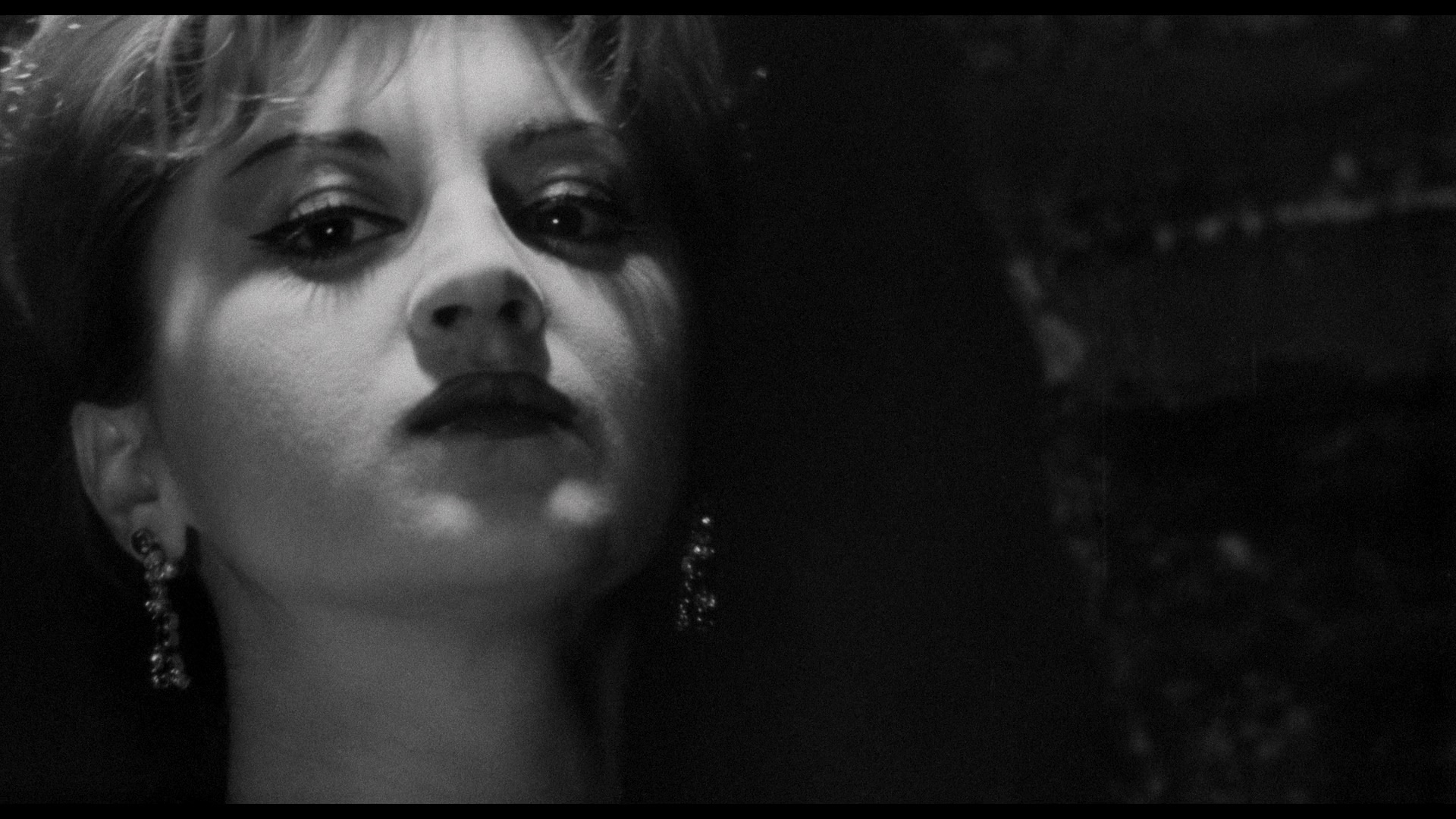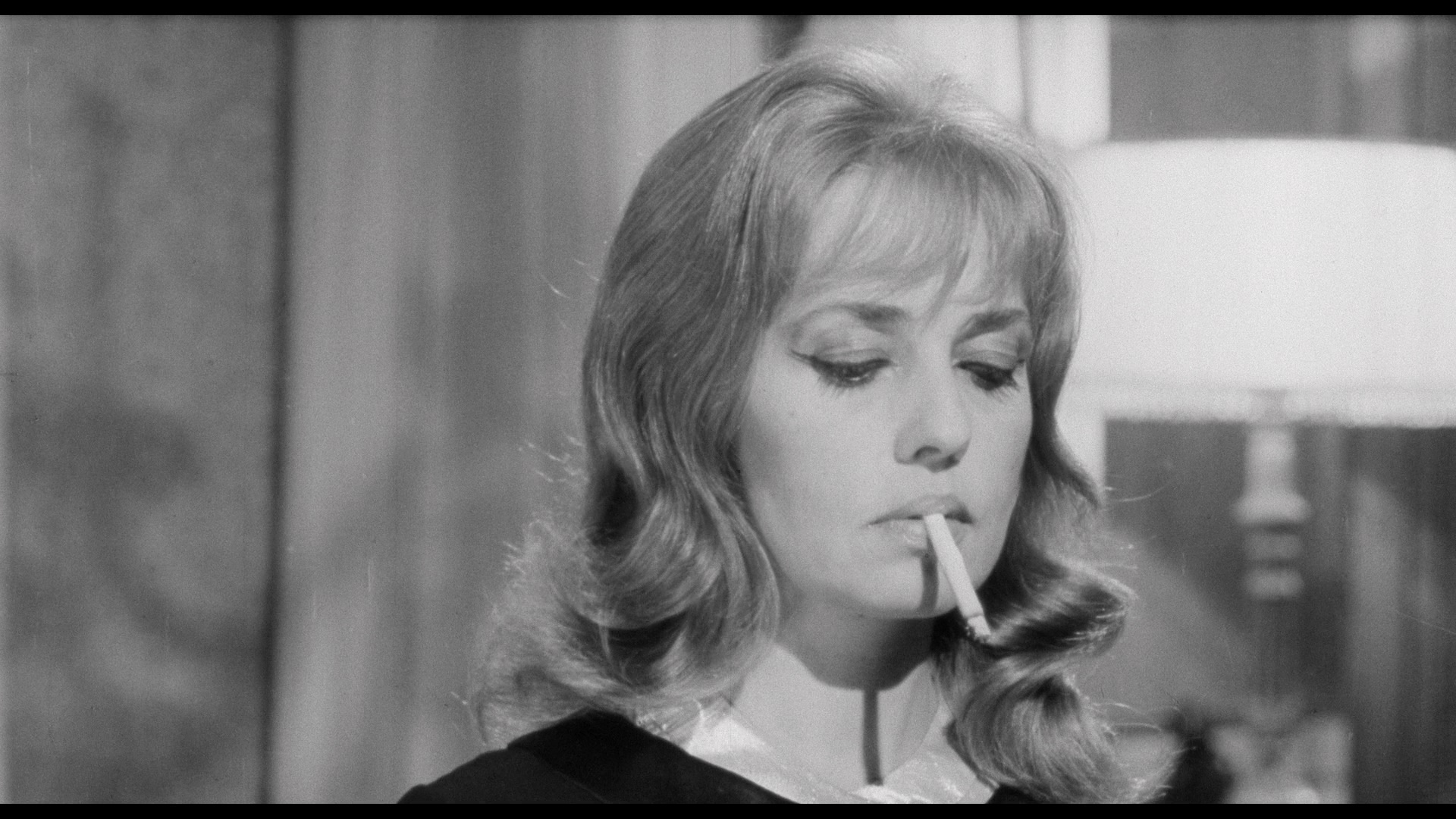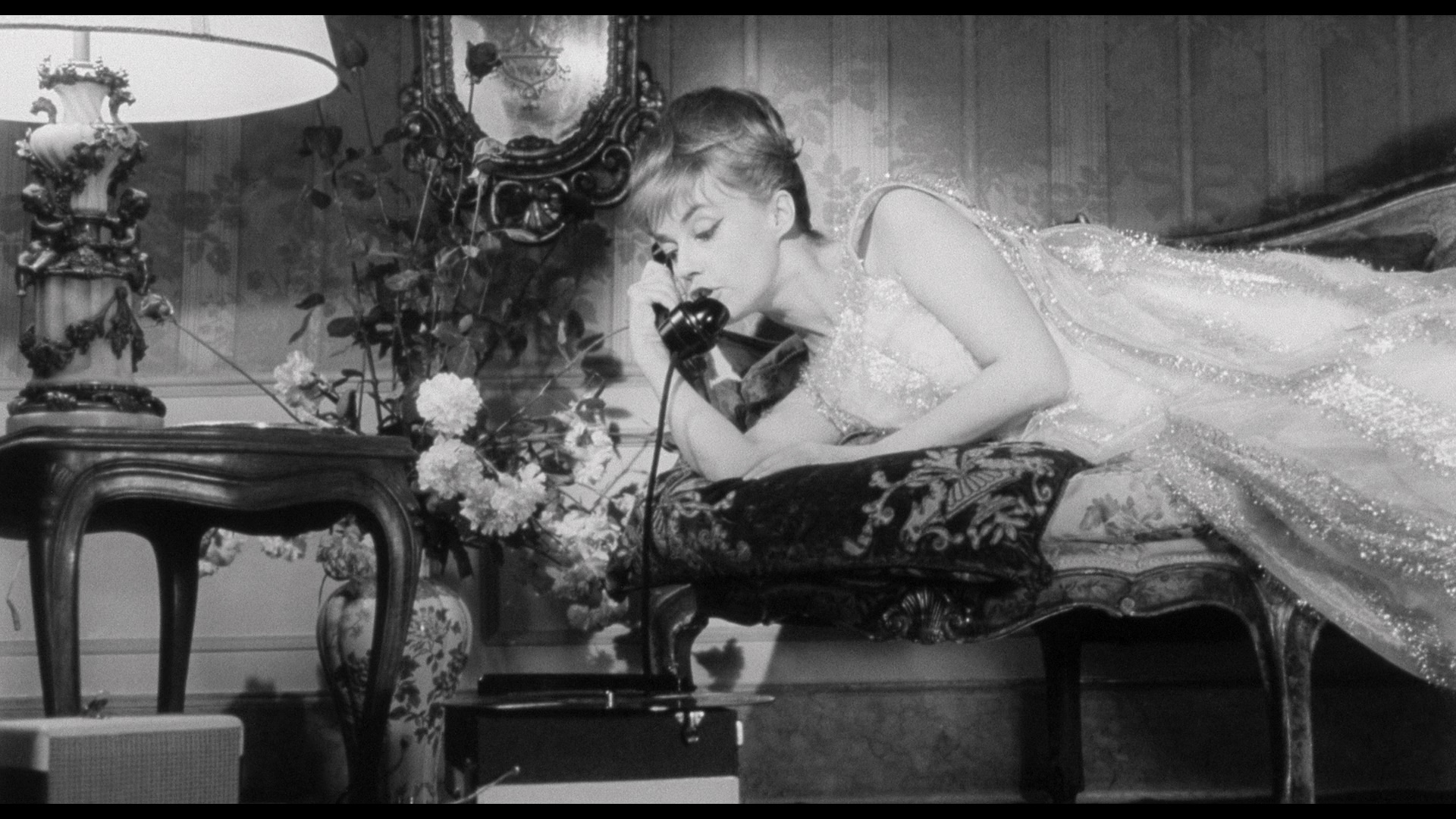

 films had worse luck than
films had worse luck than  Eve, a.k.a. Eva, director Joseph Losey's follow up to his excellent crime film from 1960, The Criminal, starring Stanley Baker. The director and star would reunite here for what amounts to a stylish showcase for Jeanne Moreau, then one of the biggest names in international cinema, but multiple conflicts and compromises along the way led to the film being mangled in various different forms around the world after a disastrous private showing at Cannes. The producers, Raymond and Robert Hakim (who also oversaw such films as Purple Noon and Belle de Jour), threw out some of the material from Losey's original 155-minute cut in the process, which has led to the daunting task of trying to reconstruct as much of the film as possible in the ensuing decades. Poor Losey was on a particularly bad streak of luck making this film back to back with These Are the Damned... but that's another story. A genuine director's cut of Eve would be impossible given the available material and the fact that Losey's original intentions for the soundtrack (to feature Miles Davis and Billie Holiday) were never realized in the first place, but the longest and truest version possible has finally been restored on home video for the first time.
Eve, a.k.a. Eva, director Joseph Losey's follow up to his excellent crime film from 1960, The Criminal, starring Stanley Baker. The director and star would reunite here for what amounts to a stylish showcase for Jeanne Moreau, then one of the biggest names in international cinema, but multiple conflicts and compromises along the way led to the film being mangled in various different forms around the world after a disastrous private showing at Cannes. The producers, Raymond and Robert Hakim (who also oversaw such films as Purple Noon and Belle de Jour), threw out some of the material from Losey's original 155-minute cut in the process, which has led to the daunting task of trying to reconstruct as much of the film as possible in the ensuing decades. Poor Losey was on a particularly bad streak of luck making this film back to back with These Are the Damned... but that's another story. A genuine director's cut of Eve would be impossible given the available material and the fact that Losey's original intentions for the soundtrack (to feature Miles Davis and Billie Holiday) were never realized in the first place, but the longest and truest version possible has finally been restored on home video for the first time. emotional
emotional  entanglements but takes pleasure in toying with him all the same. As his wedding approaches, Alan keeps finding himself drawn back to the unrepentant Eve who doesn't hold back on humiliating him in any way she can while keeping her own past and weaknesses a mystery.
entanglements but takes pleasure in toying with him all the same. As his wedding approaches, Alan keeps finding himself drawn back to the unrepentant Eve who doesn't hold back on humiliating him in any way she can while keeping her own past and weaknesses a mystery.  In 2020, Losey's film made its global Blu-ray debut from U.K. label Indicator in a lavish, limited 3,000-unit package highlighted by no less than four separate versions of the film, all in superb condition courtesy of elements at Studio Canal. The primary viewing option is what's touted as a
In 2020, Losey's film made its global Blu-ray debut from U.K. label Indicator in a lavish, limited 3,000-unit package highlighted by no less than four separate versions of the film, all in superb condition courtesy of elements at Studio Canal. The primary viewing option is what's touted as a  brand new 2K scan of Eye Filmmuseum’s photochemical restoration of the longest known version of the film, obliterating the earlier DVDs and getting us as close as possible to Losey's original cut with what currently survives. (Two brief scenes still have those baked-in Scandinavian-sourced subtitles which are exclusive to that lone remaining source.) You can also watch that version with an extra snippet of dialogue (not in Losey's cut) added back in the final scene, which knocks the running time up by a second and might as well be your initial viewing option. Also included are the most commonly seen theatrical cut (the 109-minute one) as well as an alternate French version, The Devil’s Woman, which comes in a minute shorter but makes several little cosmetic and structural alterations while also explaining why this was known as Eva so often. All of the versions feature optional English SDH subtitles and feature a solid, problem-free English LPCM audio track.
brand new 2K scan of Eye Filmmuseum’s photochemical restoration of the longest known version of the film, obliterating the earlier DVDs and getting us as close as possible to Losey's original cut with what currently survives. (Two brief scenes still have those baked-in Scandinavian-sourced subtitles which are exclusive to that lone remaining source.) You can also watch that version with an extra snippet of dialogue (not in Losey's cut) added back in the final scene, which knocks the running time up by a second and might as well be your initial viewing option. Also included are the most commonly seen theatrical cut (the 109-minute one) as well as an alternate French version, The Devil’s Woman, which comes in a minute shorter but makes several little cosmetic and structural alterations while also explaining why this was known as Eva so often. All of the versions feature optional English SDH subtitles and feature a solid, problem-free English LPCM audio track.  interview for the program Tête d’affiche from 1972 with Moreau about her
interview for the program Tête d’affiche from 1972 with Moreau about her  roles in this film and Roger Vadim's Les liaisons dangereuses as women who inflict a great deal of suffering on others. Both of these pieces are augmented with substantial clips from Eve as well. Playable as an alternate audio option for the 126m1s version is "The BEHP Interview with Reginald Beck," an in-depth, career-spanning interview with the editor and Losey mainstay recorded in 1987 in conversation with Alan Lawson. In "All About Eve" (18m57s), Gavrik Losey, the director's son, offers his own take on this "strange picture" with the avenging angel title character reflecting an extension of the relationship between his parents, as well as his own recollections of working in a minor capacity on this film's dub recording. Then film historian Neil Sinyard presents his own analysis of the film in "A Creation Myth" (23m31s) as part of a line of "mutilated masterpieces" and a key entry in Losey's filmography with its obsessive conflicts and use of symbolic imagery like masks. Also included are the (strangely bilingual) U.K. and French theatrical trailers, plus a gallery of stills and promotional material. As usual, the hefty insert booklet is essential as well and includes liner notes by Phuong Le, a Losey written excerpt on Eve, notes on the source novel and its more traditional thriller status, sample critical reactions, and notes by Simona Monizza on the Eye Filmmuseum restoration.
roles in this film and Roger Vadim's Les liaisons dangereuses as women who inflict a great deal of suffering on others. Both of these pieces are augmented with substantial clips from Eve as well. Playable as an alternate audio option for the 126m1s version is "The BEHP Interview with Reginald Beck," an in-depth, career-spanning interview with the editor and Losey mainstay recorded in 1987 in conversation with Alan Lawson. In "All About Eve" (18m57s), Gavrik Losey, the director's son, offers his own take on this "strange picture" with the avenging angel title character reflecting an extension of the relationship between his parents, as well as his own recollections of working in a minor capacity on this film's dub recording. Then film historian Neil Sinyard presents his own analysis of the film in "A Creation Myth" (23m31s) as part of a line of "mutilated masterpieces" and a key entry in Losey's filmography with its obsessive conflicts and use of symbolic imagery like masks. Also included are the (strangely bilingual) U.K. and French theatrical trailers, plus a gallery of stills and promotional material. As usual, the hefty insert booklet is essential as well and includes liner notes by Phuong Le, a Losey written excerpt on Eve, notes on the source novel and its more traditional thriller status, sample critical reactions, and notes by Simona Monizza on the Eye Filmmuseum restoration.![]()